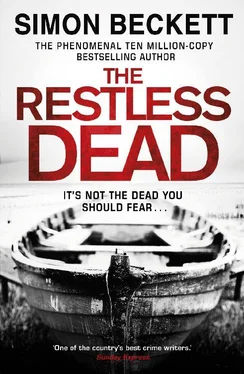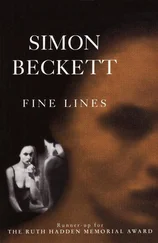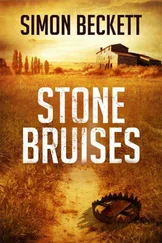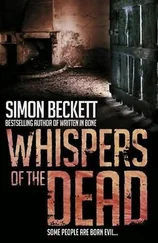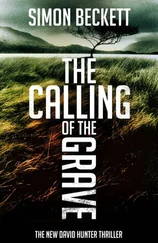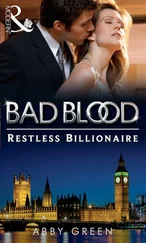Eventually, he convinced himself it never happened.
It was years before he set foot in Willets Point again. By then his mother had died, and Porter had somehow become his father’s permanent driver. Leo himself had already embarked on the path of unhappiness and rebellion that would characterize his adult life. When he was expelled from the military academy, instead of returning home for the inevitable scene with his father, he followed an impulse he didn’t fully understand and hitchhiked to the house where he used to spend his summers.
It was like being back in a barely remembered dream. The house had been shuttered for years. The chalet had gone, mysteriously burnt down years before. There was nothing to say it had ever been there, and a large magnolia tree had been planted on the spot where it once stood. Rain had dashed the petals from the candle-like buds, and the grass around the tree was dappled with their dirty-white splashes. The sight was obscurely disturbing. It stirred a vague memory, like an old photograph glimpsed on the bottom of a murky lake.
But it wasn’t until years later, when another half-understood impulse led him to set up home in his one-time sanctuary, that he came to hear how a young local girl had left her parents’ house in the Backwaters one hot summer afternoon and never been seen again.
I read through Leo Villiers’ statement twice. Then, as Clarke had requested, I deleted both email and attachment. Turning off my computer, I kneaded the bridge of my nose. All along, I’d assumed the series of tragedies in the Backwaters were recent ones. But the events that had brought me out here had been merely the latest shoots of a crime whose roots stretched back more than two decades.
I felt bone tired and sickened. Porter had seen his employer kill a young girl, and treated her death as an opportunity. Small wonder he’d been taken on permanently after that. He and Sir Stephen were bound together by what they’d done, and while Porter might not have regarded himself as a blackmailer, his silence wouldn’t have come without a reward. Perhaps that was why he’d reacted to Emma Derby and Mark Chapel as he had. They were interlopers, trespassing on what he’d have regarded as his personal territory, and he’d responded accordingly. I wasn’t going to let some chancers muscle in , he’d said at the boathouse. Not after all I’ve done for the Villiers .
And what exactly had he done, I wondered? Did his involvement only extend to keeping quiet, or had he proved his value in a more practical way? Porter’s duties certainly went beyond driving. Sir Stephen had him clean the house on Willets Point to remove any incriminating evidence, and then deliver a sports bag full of money to the blackmailers. What other favours had there been? Rowan Holloway had never been found, but I couldn’t imagine the grey-suited businessman would have dirtied his own hands disposing of her body. Not when there was someone else who’d do it for him.
I got up from my desk to make myself another coffee. Even though Leo Villiers — it was still hard to think of the person at the centre of this as Lena Merchant — wasn’t the killer we’d all believed, he didn’t emerge from this blameless. He might have been a child when his father killed Rowan Holloway, but he’d elected to remain silent as an adult. In his statement he admitted letting Edgar live rent free and sending him monthly food parcels in an attempt to appease his conscience. In doing so, he not only condemned the father of his childhood friend to a solitary existence, but set the stage for the final act of the tragedy.
He’d made Porter deliver the supplies.
If his intention was to punish the driver by reminding him of his part in the crime, it failed. All it did was gift him with another opportunity, in the form of a secluded house and an uncomplaining tenant. And when it appeared that Leo Villiers had committed suicide, Porter stopped bothering with the food parcels anyway. He’d been prepared to help cover up the killing of Edgar’s young daughter. I couldn’t see him losing any sleep over letting her father starve.
Now Porter himself was dead, along with five other people. And the only person who’d emerged unscathed was the man who had started it all.
Sir Stephen Villiers.
I sat down with my coffee, then got up and added a splash of whisky to it. There was precious little chance that Rowan Holloway’s killer would face charges for what he’d done. Although I didn’t doubt what I’d read — it fitted too well with what we already knew — an unsubstantiated childhood memory would never be enough to warrant prosecution. Especially not one that had supposedly been suppressed for years, and that by his own admission Leo had chosen to conceal until now.
The unpalatable truth was that, with neither evidence nor a body, there was little the police could do. They had ample cause now to conduct yet another, more exhaustive search at Willets Point, and it had crossed my mind that the magnolia tree planted on the site of the old chalet might have more than soil concealed under its roots. But Sir Stephen wouldn’t have wanted such tangible evidence of what he’d done to remain on his property, not since there was a much better alternative nearby.
Perhaps Mark Chapel’s body wasn’t the first Porter had hidden in the Backwaters.
The maze of waterways would no doubt be searched again as well, but the chances of finding Rowan Holloway were remote. After all these years, there would be little of the young girl left to find. Just lonely bones sunk into the mud.
Yet the police couldn’t ignore the allegations, not when they’d come from Sir Stephen’s own son. I would have liked to ask Clarke what was going on, but I knew the DCI wouldn’t appreciate that, and doubted she’d tell me anyway. She’d stuck her neck out enough as it was.
So there was nothing I could do but wait, and hope something happened. Days passed without any mention of Sir Stephen Villiers so much as being questioned, let alone arrested. I shouldn’t have been surprised. He’d been ruthless enough in protecting the family name when it was his son who’d been a suspect. Now it was his own reputation, not to mention liberty, at stake, he’d be exerting all his power and influence. It was galling to think he could emerge unscathed even after this, yet as the furore over the killings in the Backwaters started to die down, I began to think that Rowan Holloway’s killer was going to go unpunished.
I wasn’t the only one.
When Leo Villiers posted his story on social media, not even Sir Stephen’s legal team could suppress the storm that followed. The heir of a wealthy and powerful man hadn’t only come back from the dead, but done so as a woman. As if that weren’t enough, now he was accusing his father of killing a young girl over two decades before.
The revelations caused outrage. An old school photograph of a smiling Rowan Holloway, blond and engagingly gap-toothed, was shown everywhere as the story of her disappearance was revisited. Predictably, Sir Stephen hid behind his lawyers, who deflected questions with assertions of innocence or bland ‘no comment’s. The businessman himself said nothing, but news footage of him hurrying into his car — a dark-grey rather than black Daimler now — told its own story. His face looked drawn, even more colourless than before, the bones of his skull picked out by the flash of cameras. Before I turned off the TV in disgust I had the unprofessional, and unsympathetic, thought that he looked like a dead man in waiting.
It turned out to be prophetic. When news broke that Sir Stephen was critically ill after a massive stroke, his lawyer issued a statement blaming the stress caused by all the media attention. It could well have been true. There’s nothing unusual about being able to commit a crime. What sets some people apart is their ability to live with it. Sir Stephen had lived with his for twenty-five years, untouched and apparently unmoved.
Читать дальше
